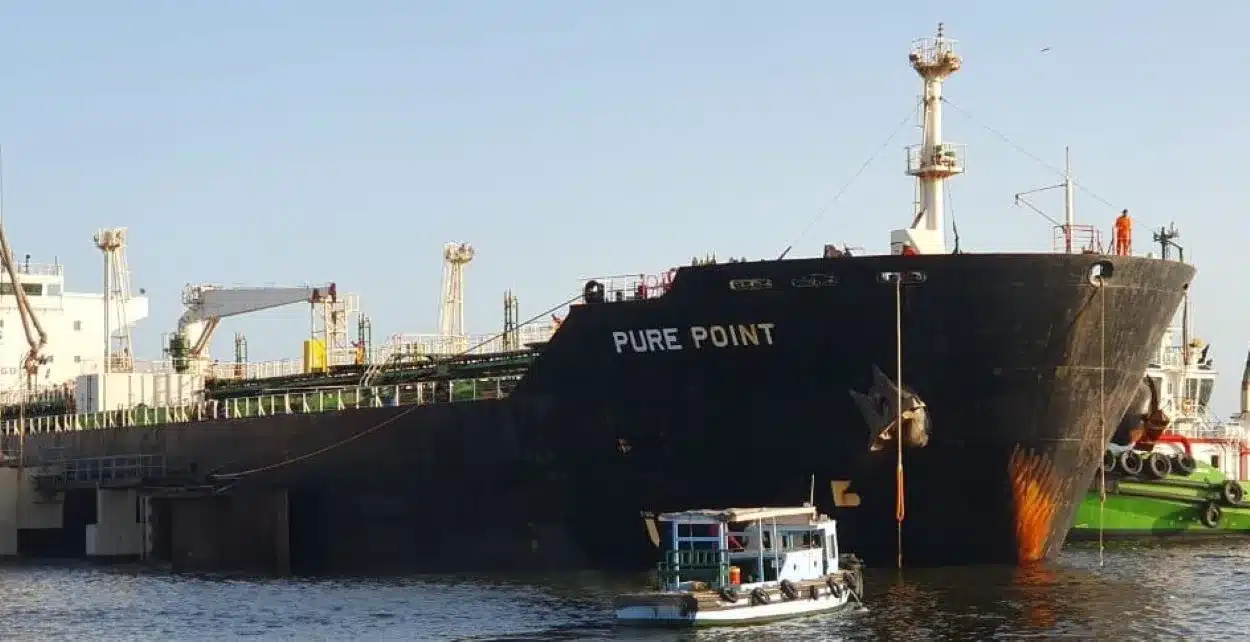Pakistan has strengthened its energy partnership with the United States through the arrival of a second shipment of American crude oil indicates an expansion of cooperation between the two nations and diversifies Pakistan’s traditional oil import sources.
The latest US crude cargo reached Cnergyico’s Single Point Mooring facility this week. This delivery marks a strategic shift for Pakistan, which has historically relied primarily on Middle Eastern oil suppliers, with Saudi Arabia being its leading crude exporter.
The Single Point Mooring facility represents a crucial piece of Pakistan’s energy infrastructure. Commissioned in 2012 with a $120 million investment, the project initially faced industry skepticism regarding its viability and implementation.
Since becoming operational, the SPM has processed over 150 million barrels of imported crude oil. The facility maintains a unique capability within Pakistan to accommodate large vessels, including Suezmax and VLCC tankers, that cannot dock at conventional ports.
Addressing Trade Imbalances Through Private Enterprise
The United States’ implementation of global tariffs created significant trade challenges for Pakistan. The resulting trade imbalance exceeding $3 billion required strategic responses from both government and private sectors.
While the US government provided relatively favorable tariff rates for Pakistan, addressing the trade gap necessitated private sector initiative. Pakistani exporters expanded their international market presence while energy companies pursued new import opportunities.
Cnergyico’s independent initiative to import US crude oil demonstrates how private enterprises can advance national energy security. Industry officials note that this approach often achieves results more efficiently than traditional bureaucratic processes.
Read: Pakistan Receives First US Crude Oil Shipment After Trade Talks
The company’s successful importation of American crude highlights how private sector innovation can support broader national economic objectives. This development occurred despite various regulatory challenges facing private businesses.
Policy Framework Supports Refinery Modernization
Pakistan’s refining sector has recently faced significant uncertainty, particularly regarding the policy for brownfield refineries. This policy ambiguity created operational and investment challenges for domestic refining operations.
The establishment of the Special Investment Facilitation Council brought much-needed coordination and policy clarity to the sector. The council’s focus on eliminating bureaucratic obstacles has helped stabilise Pakistan’s refining industry.
Government recognition of refineries as strategic national assets has prompted concrete support measures. The current Petroleum Minister and SIFC have implemented policies to strengthen and stabilise this crucial sector.
The refinery upgrade initiative represents a substantial investment opportunity exceeding $6 billion. This modernisation effort will conserve foreign exchange reserves while enhancing domestic refining capabilities.






